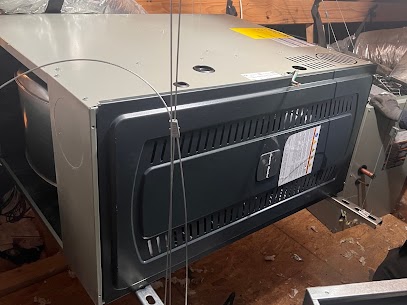When shopping for a new air conditioning system, you may come across two terms that describe energy efficiency: SEER and EER. Understanding the difference between SEER and EER can help you choose the right air conditioning system for your needs.
SEER stands for Seasonal Energy Efficiency Ratio, while EER stands for Energy Efficiency Ratio. Both SEER and EER are measurements of an air conditioning system’s cooling efficiency, but they are calculated differently.
SEER is a measurement of the cooling efficiency of an air conditioning system over an entire cooling season. The higher the SEER rating, the more efficient the system is at cooling your home. The SEER rating takes into account the efficiency of the system at various temperatures and humidity levels over the course of the cooling season.
For example, if a system has a SEER rating of 16, it means that it can produce 16 units of cooling for every unit of energy consumed. The higher the SEER rating, the more energy-efficient the system is.
EER is a measurement of the cooling efficiency of an air conditioning system at a specific temperature and humidity level. The EER rating is calculated by dividing the cooling capacity of the system (in BTUs per hour) by the power consumption of the system (in watts) at a specific outdoor temperature.
For example, if a system has an EER rating of 12, it means that it can produce 12 units of cooling for every unit of energy consumed at a specific outdoor temperature. The higher the EER rating, the more energy-efficient the system is at that specific temperature.
SEER and EER are both important measurements of energy efficiency, but they measure different things. SEER is a measurement of the cooling efficiency of an air conditioning system over an entire cooling season, while EER is a measurement of the cooling efficiency of an air conditioning system at a specific temperature and humidity level.
SEER is the more commonly used measurement for energy efficiency, as it takes into account the efficiency of the system over a range of temperatures and humidity levels. EER is useful for comparing the efficiency of systems at a specific temperature, such as in a hot and dry climate.
When choosing an air conditioning system, it’s important to consider both the SEER and EER ratings. Look for a system with a high SEER rating for overall energy efficiency, and consider the EER rating if you live in a hot and dry climate where the system will be operating at high temperatures for extended periods of time.
In conclusion, SEER and EER are both important measurements of energy efficiency when choosing an air conditioning system. SEER measures the efficiency of the system over an entire cooling season, while EER measures the efficiency of the system at a specific temperature and humidity level. Consider both ratings when choosing a system for your home.
Choosing the right HVAC system to cool your home depends on a number of factors that aren’t all related to the individual merits of each type of system. Both central air conditioning and ductless mini-split systems are effective methods for cooling. Making the best choice for your home depends on your home’s existing configuration and size, plus personal considerations like aesthetics and the desire for individualized control.
When you’re making your choice you’ll be well served by consulting with an licensed HVAC installer. You’ll have questions and you’ll need expert advice on how well your ideas will work in your home. That’s where Team Enoch comes in. Our team of experienced
HVAC professionals can answer your questions and help you decide on the right way to go. And remember, estimates are free with Team Enoch, so get started now with your
free quote request! We’ll be happy to help you make a smart decision when it’s time to choose a new air conditioning system for your home.

